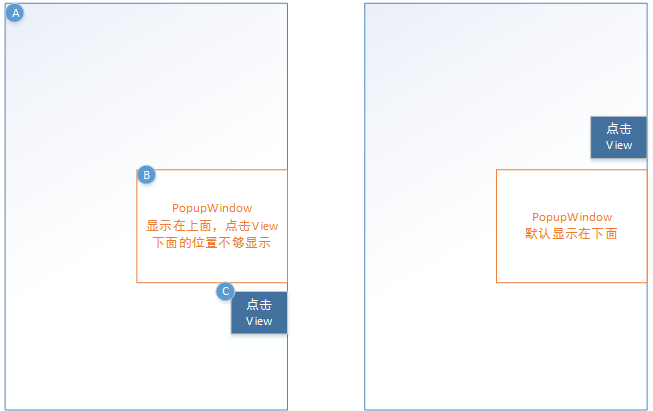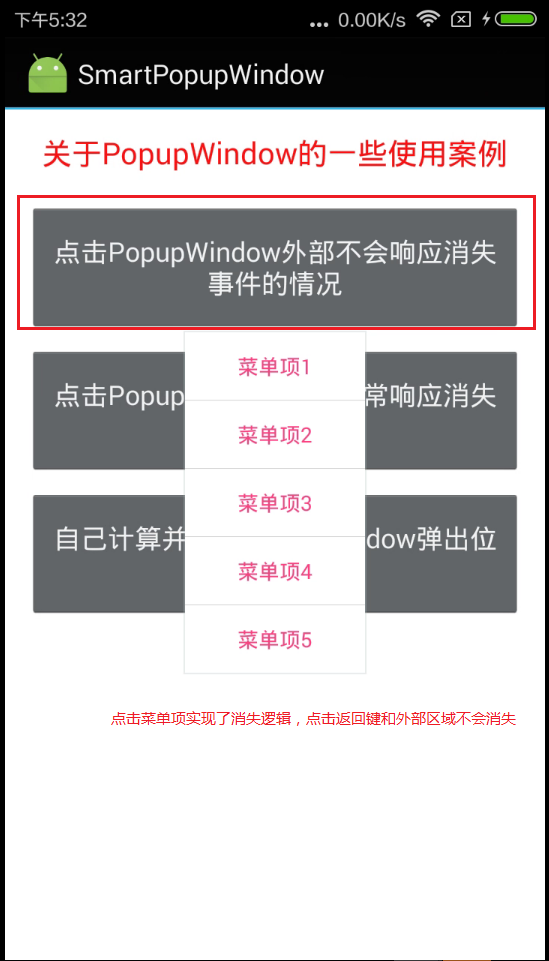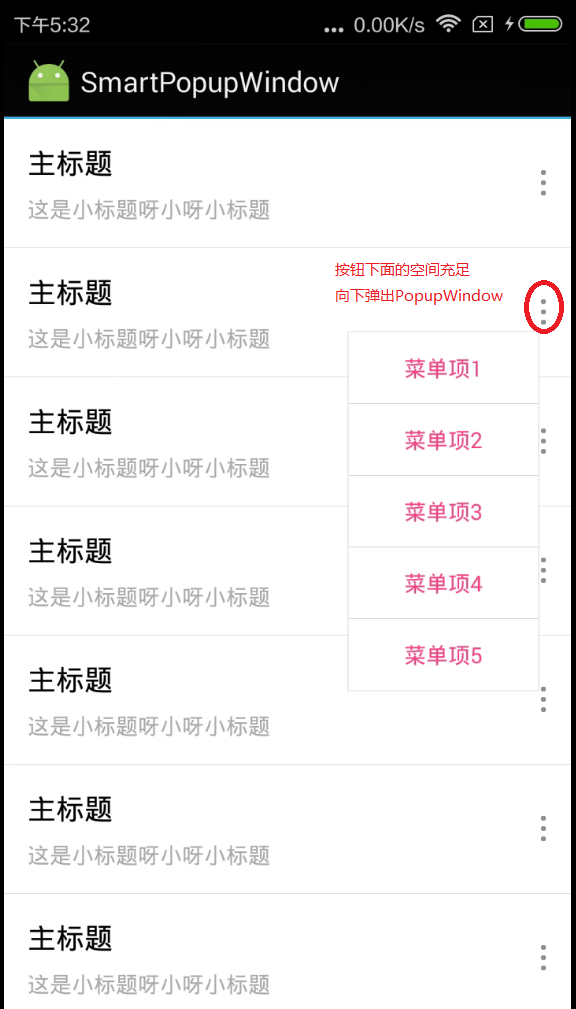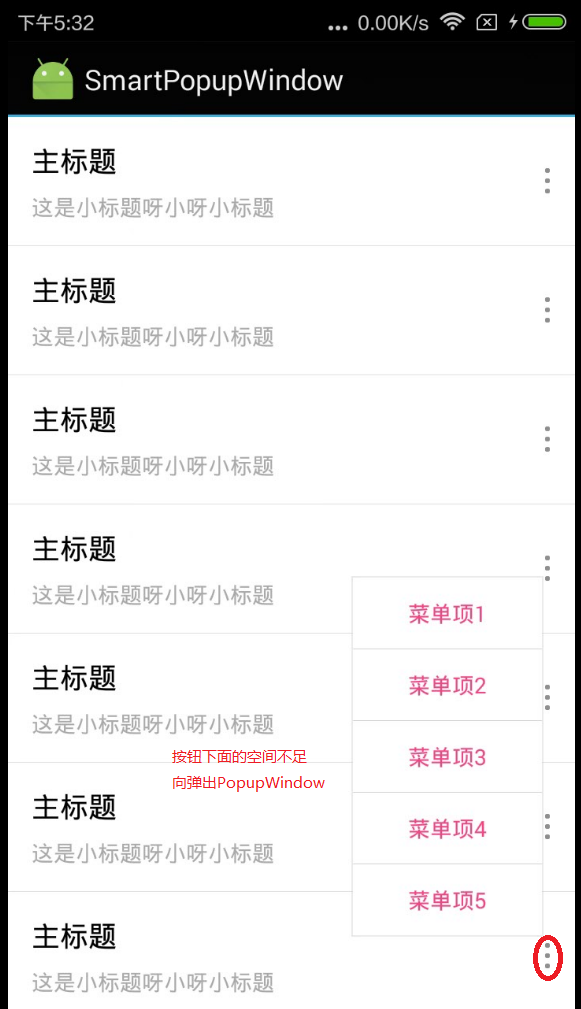Android PopupWindow怎么合理控制弹出位置(showAtLocation)
小编推荐
自己开发app到上架应用市场需要经历什么?https://www.cnblogs.com/popfisher/p/14218431.html
说到PopupWindow,应该都会有种熟悉的感觉,使用起来也很简单
// 一个自定义的布局,作为显示的内容 Context context = null; // 真实环境中要赋值 int layoutId = 0; // 布局ID View contentView = LayoutInflater.from(context).inflate(layoutId, null); final PopupWindow popupWindow = new PopupWindow(contentView, LayoutParams.WRAP_CONTENT, LayoutParams.WRAP_CONTENT, true); popupWindow.setTouchable(true); // 如果不设置PopupWindow的背景,有些版本就会出现一个问题:无论是点击外部区域还是Back键都无法dismiss弹框 // 这里单独写一篇文章来分析 popupWindow.setBackgroundDrawable(new ColorDrawable()); // 设置好参数之后再show popupWindow.showAsDropDown(contentView);
如果创建PopupWindow的时候没有指定高宽,那么showAsDropDown默认只会向下弹出显示,这种情况有个最明显的缺点就是:弹窗口可能被屏幕截断,显示不全,所以需要使用到另外一个方法showAtLocation,这个的坐标是相对于整个屏幕的,所以需要我们自己计算位置。
如下图所示,我们可以根据屏幕左上角的坐标A,屏幕高宽,点击View的左上角的坐标C,点击View的大小以及PopupWindow布局的大小计算出PopupWindow的显示位置B

计算方法源码如下:
/** * 计算出来的位置,y方向就在anchorView的上面和下面对齐显示,x方向就是与屏幕右边对齐显示 * 如果anchorView的位置有变化,就可以适当自己额外加入偏移来修正 * @param anchorView 呼出window的view * @param contentView window的内容布局 * @return window显示的左上角的xOff,yOff坐标 */ private static int[] calculatePopWindowPos(final View anchorView, final View contentView) { final int windowPos[] = new int[2]; final int anchorLoc[] = new int[2]; // 获取锚点View在屏幕上的左上角坐标位置 anchorView.getLocationOnScreen(anchorLoc); final int anchorHeight = anchorView.getHeight(); // 获取屏幕的高宽 final int screenHeight = ScreenUtils.getScreenHeight(anchorView.getContext()); final int screenWidth = ScreenUtils.getScreenWidth(anchorView.getContext()); contentView.measure(View.MeasureSpec.UNSPECIFIED, View.MeasureSpec.UNSPECIFIED); // 计算contentView的高宽 final int windowHeight = contentView.getMeasuredHeight(); final int windowWidth = contentView.getMeasuredWidth(); // 判断需要向上弹出还是向下弹出显示 final boolean isNeedShowUp = (screenHeight - anchorLoc[1] - anchorHeight < windowHeight); if (isNeedShowUp) { windowPos[0] = screenWidth - windowWidth; windowPos[1] = anchorLoc[1] - windowHeight; } else { windowPos[0] = screenWidth - windowWidth; windowPos[1] = anchorLoc[1] + anchorHeight; } return windowPos; }
接下来调用showAtLoaction显示:
View windowContentViewRoot = 我们要设置给PopupWindow进行显示的View
int windowPos[] = calculatePopWindowPos(view, windowContentViewRoot); int xOff = 20;// 可以自己调整偏移 windowPos[0] -= xOff; popupwindow.showAtLocation(view, Gravity.TOP | Gravity.START, windowPos[0], windowPos[1]);
// windowContentViewRoot是根布局View
上面的例子只是提供了一种计算方式,在实际开发中可以根据需求自己计算,比如anchorView在左边的情况,在中间的情况,可以根据实际需求写一个弹出位置能够自适应的PopupWindow。
补充上获取屏幕高宽的代码ScreenUtils.java:
/** * 获取屏幕高度(px) */ public static int getScreenHeight(Context context) { return context.getResources().getDisplayMetrics().heightPixels; } /** * 获取屏幕宽度(px) */ public static int getScreenWidth(Context context) { return context.getResources().getDisplayMetrics().widthPixels; }
Demo截图展示:



看完觉得有用记得点击推荐支持一下,谢谢
Demo下载地址:https://github.com/PopFisher/SmartPopupWindow




 浙公网安备 33010602011771号
浙公网安备 33010602011771号